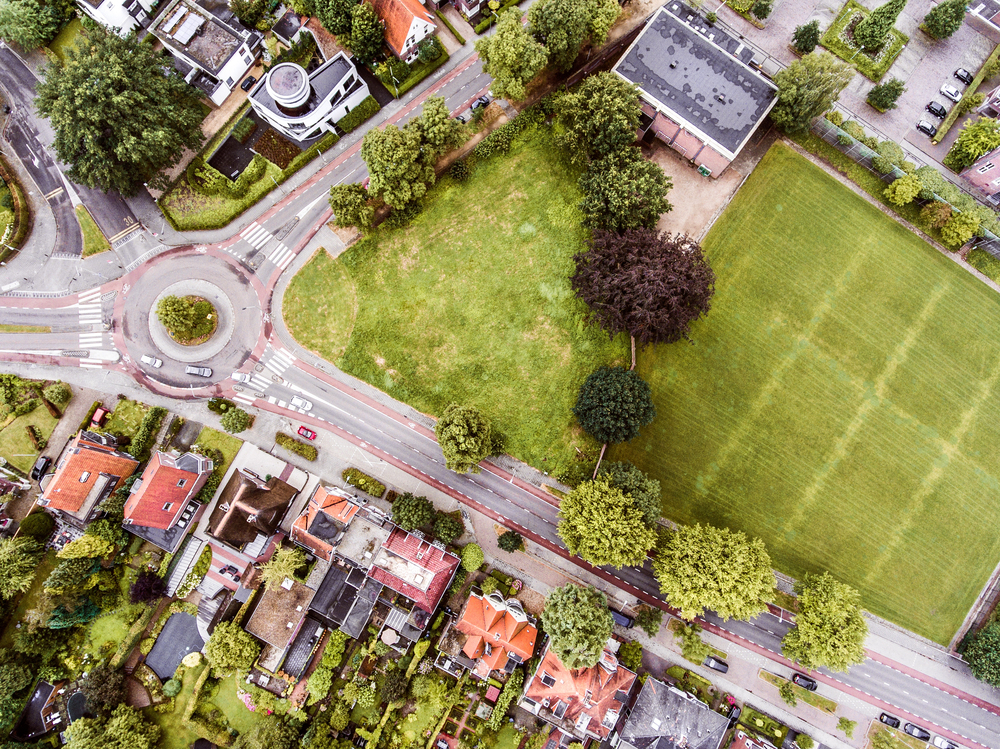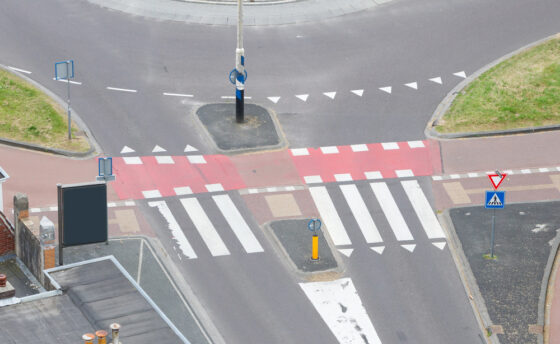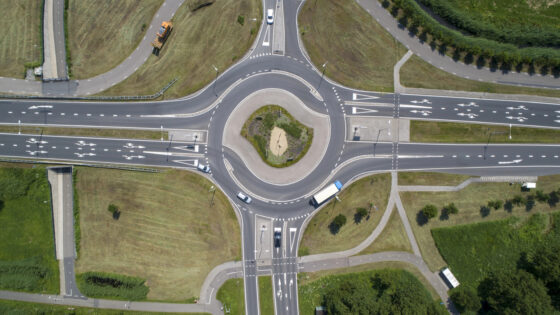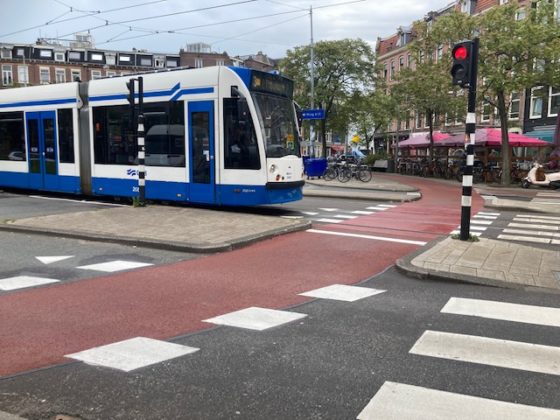Going in circles: are Dutch roundabouts really that safe?
Brandon Hartley
Dutch roundabouts are considered among the pinnacles of roadway design both in the Netherlands and abroad. So what makes them so special, and do they really reduce traffic accidents?
A car inches over a zebra crossing which rings a busy city centre roundabout. There is not enough space between the crossing and the cycle lane, leaving the car half in the way of pedestrians. A cyclist zooms past at full speed without indicating they are going straight on. A bus blocks the crossing and the cycle lane while inching out into the roadway. On the other side, a tram is approaching.
Chaos? No, but confusing, yes. ‘Dutch style’ roundabouts have been making waves across Europe. You’ll find them opening everywhere, heralded as a breakthrough in road design.
Often a combination of cycle lane, road, pedestrian crossing and even a tram or two in the Netherlands at least, today’s roundabouts are seen as the perfect solution for dealing with busy intersections.
The first roundabouts were introduced in the Netherlands back in the early 1980s and were soon declared the “Holy Grail” of traffic safety.
Today, about one third of road traffic deaths in the Netherlands occur at road junctions, but “roundabouts are generally safer than traditional intersections,” says Isaia Pecorino, a spokeswoman for The Hague city council. “This is partly due to the slower speeds that people use as they go through them. This significantly reduces the chance of accidents.”

Urban designers and city officials tend to agree on this point, but Dutch roundabouts are not perfect, especially for cyclists.
Willemijn Pomper, from road safety advocacy group VVN, notes that research conducted between 2015 and 2018 showed that 22.3% of roundabouts in the Netherlands had one or more bicycle accidents and 786 of them were the scene of one or more serious incidents.
“A major problem is the lack of uniformity in the design and priority rules of roundabouts,” he told Dutch News. “This leads to confusion among road users, especially in the interaction between cars and cyclists.”
These accidents usually occur when motorists don’t spot cyclists passing in front of their vehicles, with their gaze often focusing on other motor vehicles instead. Poor signage and directional markers at many of these intersections don’t help either.
“The guidelines state that cyclists should have priority within built-up areas like cities,” says Dr. Maria Salomons, who has been studying road design at Delft University for over two decades. “Unfortunately, this is less safe. Where there are fewer cyclists outside built-up areas, cyclists do not have priority. This can be confusing.”

Some roundabouts even have bidirectional cycle paths, adding to the lack of oversight. “And if there is also a tram going into a roundabout as well, the situation is simply beyond many road users,” she says.
Kees Bakker from cycling lobby group Fietsersbond agrees that roundabouts are safer for cyclists than traditional intersections, but that isn’t to say there isn’t room for improvement.
“Roundabouts with multiple lanes are much more difficult for cyclists to use,” he said. “So if a roundabout has separate cycle paths, it is important to design them well.”
Many roundabouts, he says, need additional safety adjustments including better sight lines for motorists and features like speed bumps to further slow them down.
Road safety group SWOV is now working together with pro-cycling group CROW on a major analysis of roundabouts all over the country to find out how safe they are for vulnerable road users. The study is set to take place over the course of 2025.
The project follows on from research published in 2022 by traffic bureau VIA which suggested roundabouts are increasingly unsafe for cyclists to navigate because traffic has become ‘more complex’.

VIA looked at all registered accidents at intersections involving cyclists between 2014 and 2021 and found that roundabouts in particular are much less safe than earlier data had suggested.
Roundabouts make up only 0.6% of the 575,000 intersections in the Netherlands but some 12% of all accidents involving bikes or e-bikes happen on one, VIA said at the time.
Safety improvements
“Although the roundabout is the safest of all intersection types, there are still many questions about whether and how its safety can be improved,” says SWOV. “For example, what difference does a one-way cycle path make compared to a two-way cycle path? Can the design of the roundabout improve visibility for motorists who are turning off when it comes to cyclists going straight ahead?”
But as with many aspects of urban design, user error is often the biggest problem at roundabouts, as are distractions like smartphones.
While drivers often blame cyclists for accidents, they are often misbehave as well, says Salomons. “Of course, there are plenty of cyclists who are wearing headphones and pedestrians who step onto the cycle path without looking up or around… And everyone likes to point fingers at everyone else.”
Thank you for donating to DutchNews.nl.
We could not provide the Dutch News service, and keep it free of charge, without the generous support of our readers. Your donations allow us to report on issues you tell us matter, and provide you with a summary of the most important Dutch news each day.
Make a donation